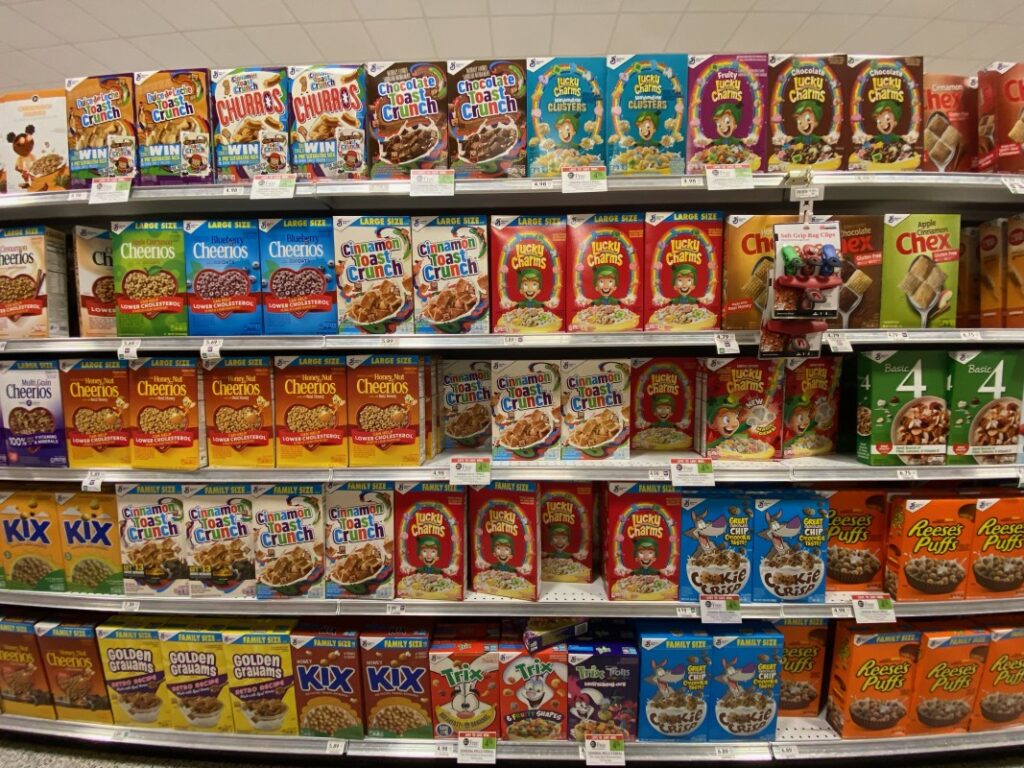Although many argue that the U.S. has some of the biggest portion sizes worldwide, others have begun to notice an extreme downsizing in prepackaged foods.
Nothing is more relatable than buying a bag of chips to enjoy on a Friday night while sitting on the couch and watching TV after a long workweek.
Don’t miss the move: Subscribe to TheStreet’s free daily newsletter
However, upon opening the bag, it’s always disappointing to find that most of it is filled with air, and only a third actually contains chips.
Lately, it seems that packaging is getting increasingly smaller, and the inside is getting even emptier, yet Americans are still paying the same prices or more than before.
Well, this assumption might sadly be correct.
Lawmakers are cracking down on ‘shrinkflation’
On Feb. 28, Sen. Bob Casey of Pennsylvania introduced the Shrinkflation Prevention Act to crack down on big corporations that offer less product per package without reducing prices. The act allows the Federal Trade Commission to punish companies that engage in these practices.
“Corporations are trying to pull the wool over our eyes by shrinking their products without reducing their prices—anyone on a tight budget sees it every time they go to the grocery store,” said Sen. Casey in the bill’s announcement.
Related: Retail sales grow, but one issue poses major economic threat
According to studies compiled by Sen. Casey, inflation increased by 14% from Jun. 2020 through Jun. 2022, while corporate profits grew by over 74%.
Additionally, corporate profits accounted for all inflation from July 2020 through July 2021 and 41% of all inflation from July 2020 through July 2022.
However, manufacturing costs have increased due to inflation, making ingredients and packaging materials more costly than before, which may justify why these companies have chosen to reduce product size instead of spiking prices.
Elizabeth Warren expresses her frustrations with ‘shrinkflation’ via letter
Democratic Sen. Elizabeth Warren of Massachusetts and Rep. Madeleine Dean of Pennsylvania have also had enough of this prepackaged foods downsizing and expressed their frustrations by sending a letter on Sunday to Coca-Cola (KO) , PepsiCo (PEP) , and General Mills (GIS) , asking the food and beverage giants to stop ‘shrinkflation.’
Both lawmakers are accusing three of the biggest food and beverage companies in the U.S. of using sneaky tactics to increase profits by reducing the size of their products and selling less content to their customers for the same or a higher price than before downsizing.
Sen. Warren and Rep. Dean also accused the food and beverage giants of funding Trump’s 2017 tax bill, which promoted tax cuts, because they wanted to increase profits by raising prices.
According to the letter, within five years of the 2017 tax cut bill, all three companies paid lower taxes, far less than those paid by many regular citizens.
As stated in the letter, in 2017, General Mills made profits of $12 billion and paid an average of 14.8% tax rate, Coca-Cola made $13.4 billion in profits and paid around 13.5% in taxes, and PesiCo made profits of $22.4 billion and paid tax rates of about 15%.
Food and Beverage companies sneakily downsize their products
In the letter, Sen. Warren and Rep. Dean backed up their claims by unveiling the companies’ tactics that promote ‘shrinkflation.’
More Retail:
- New owners of formerly bankrupt restaurant chain reopen locations
- McDonald’s biggest problem may fixe itself soon
In 2021, General Mills reduced the size of multiple cereal boxes by a few ounces and charged the same price for them. Only a few months later, the company increased its prices by five times, leaving customers with less product content and way higher costs.
Coca-Cola also joined the downsizing trend by selling less soda for the same price, while PepsiCo reduced its 32-oz Gatorade bottles to 28-oz and sold them for the same price.
“Shrinking the size of a product in order to gouge consumers on the price per ounce is not innovation, it is exploitation,” the letter to PepsiCo head Ramon Laguarta said, according to NBC News.
Related: Veteran fund manager sees world of pain coming for stocks
